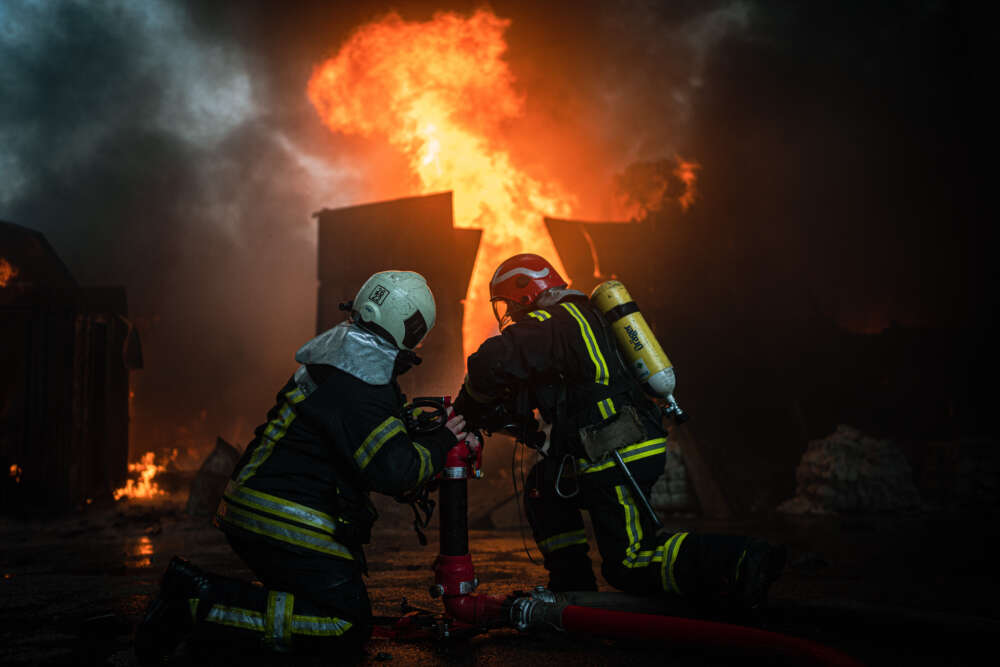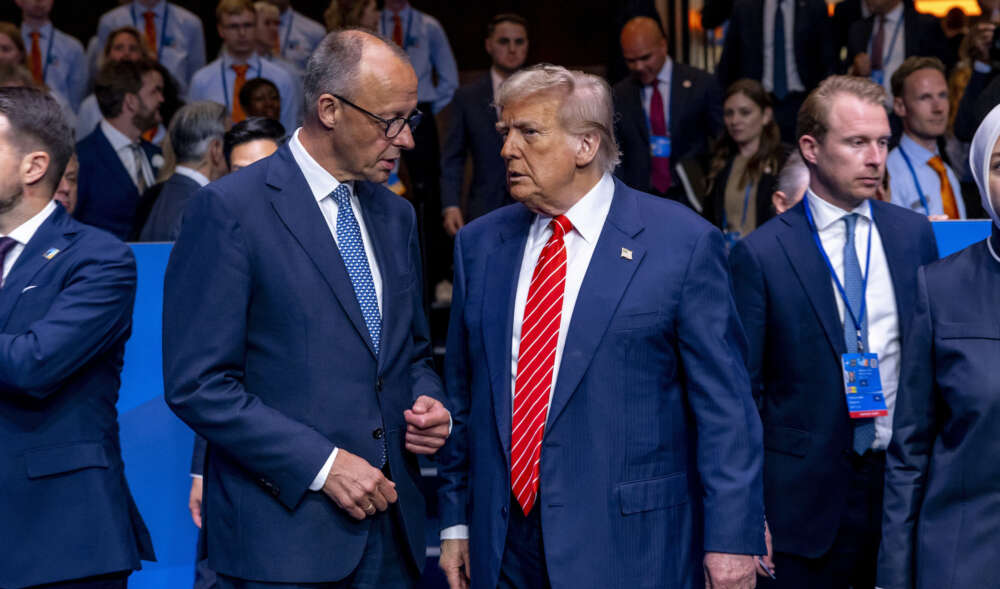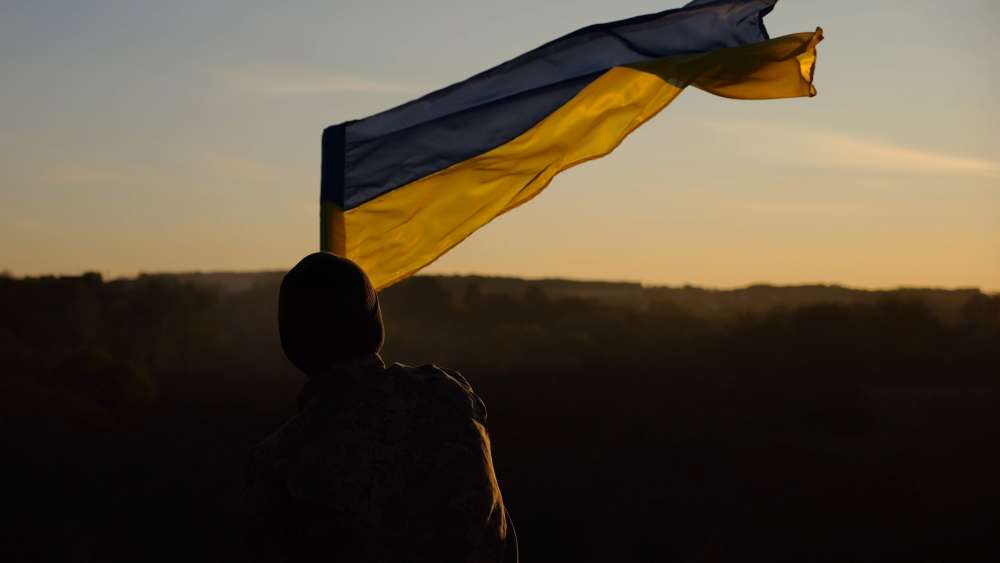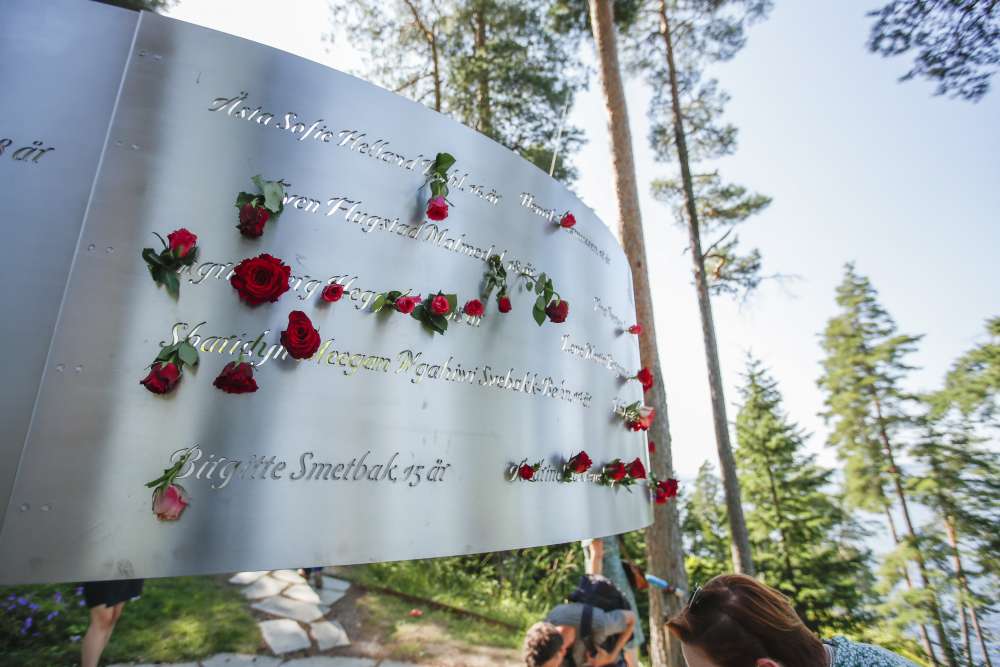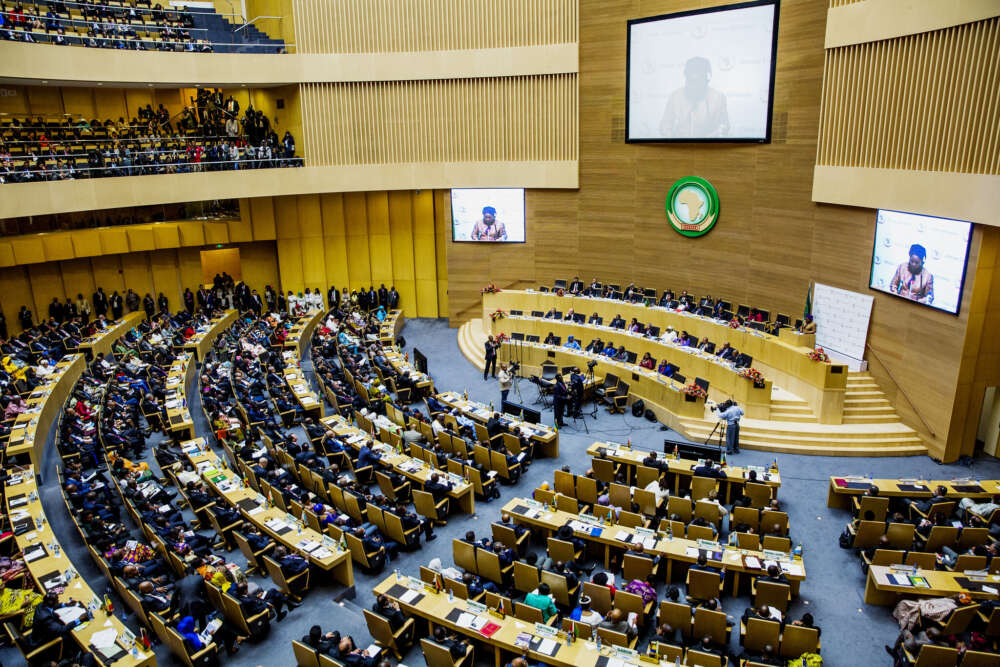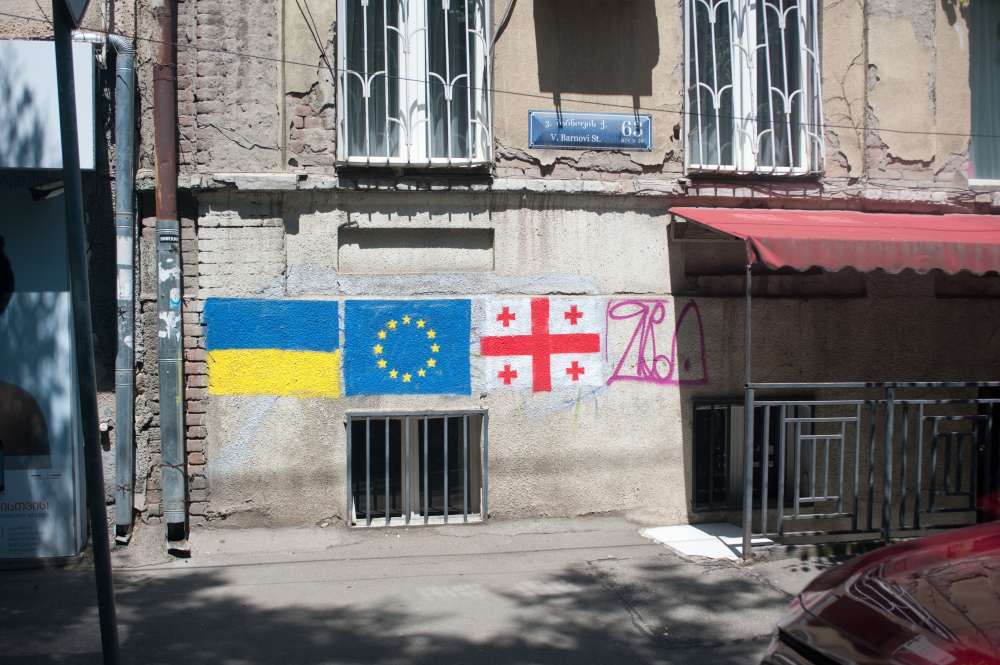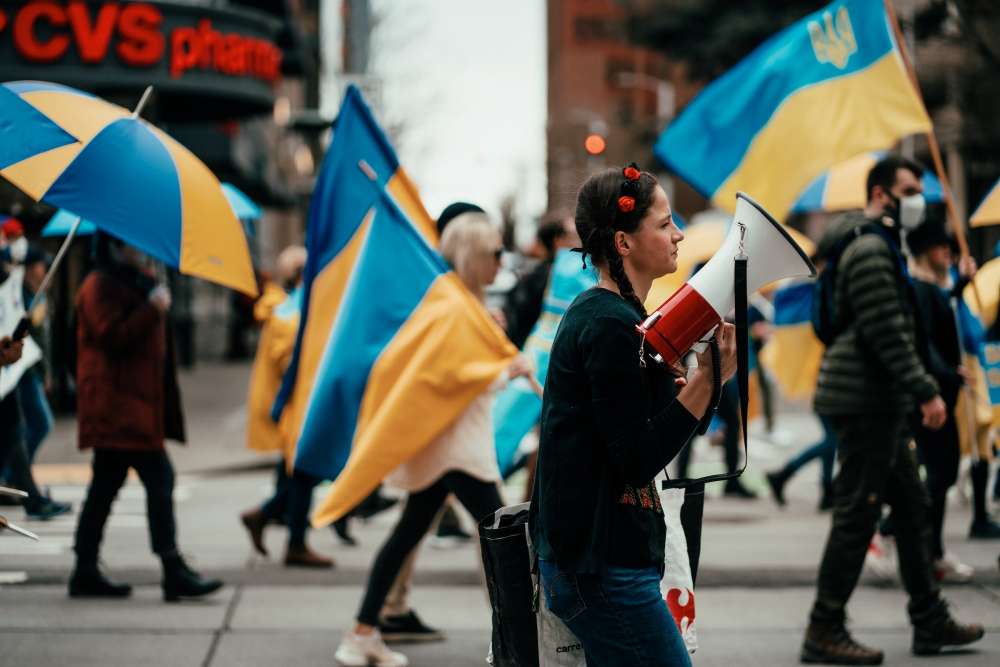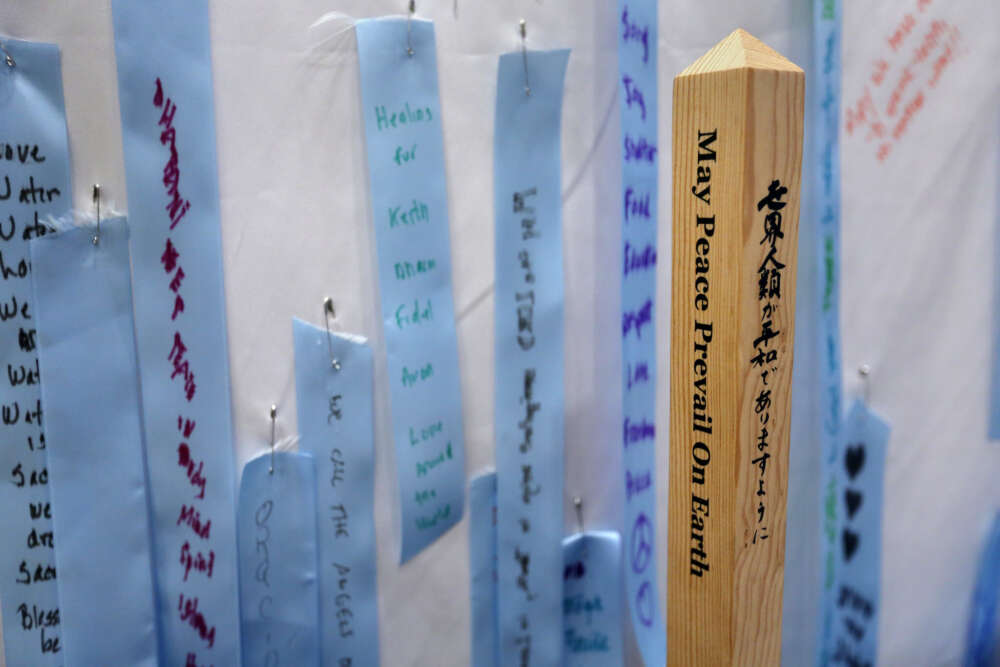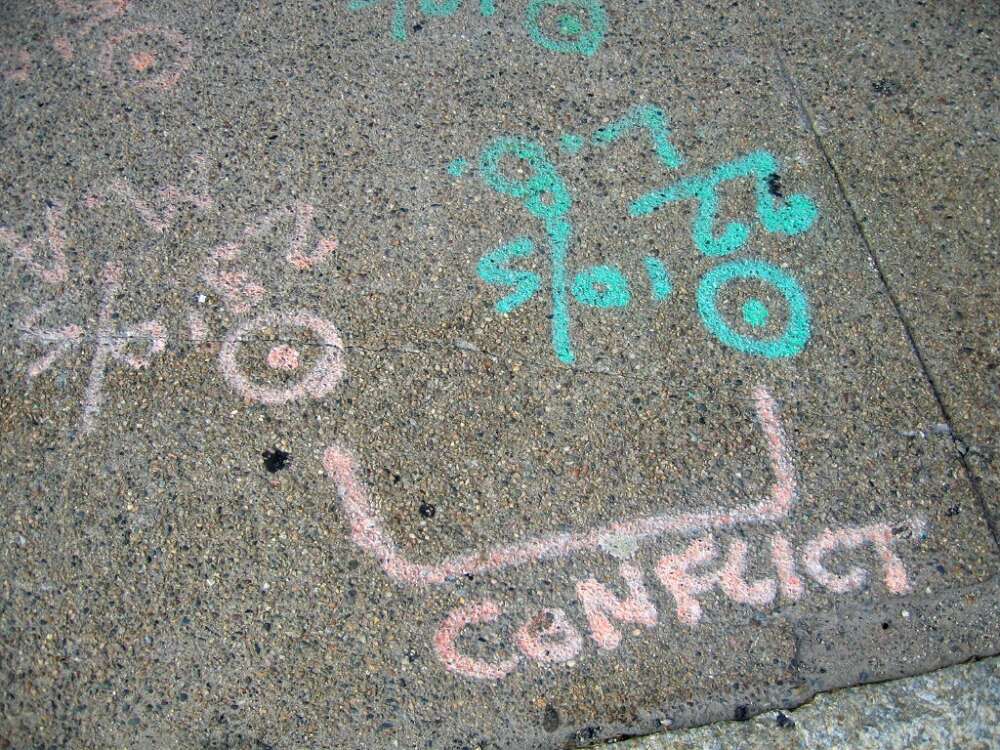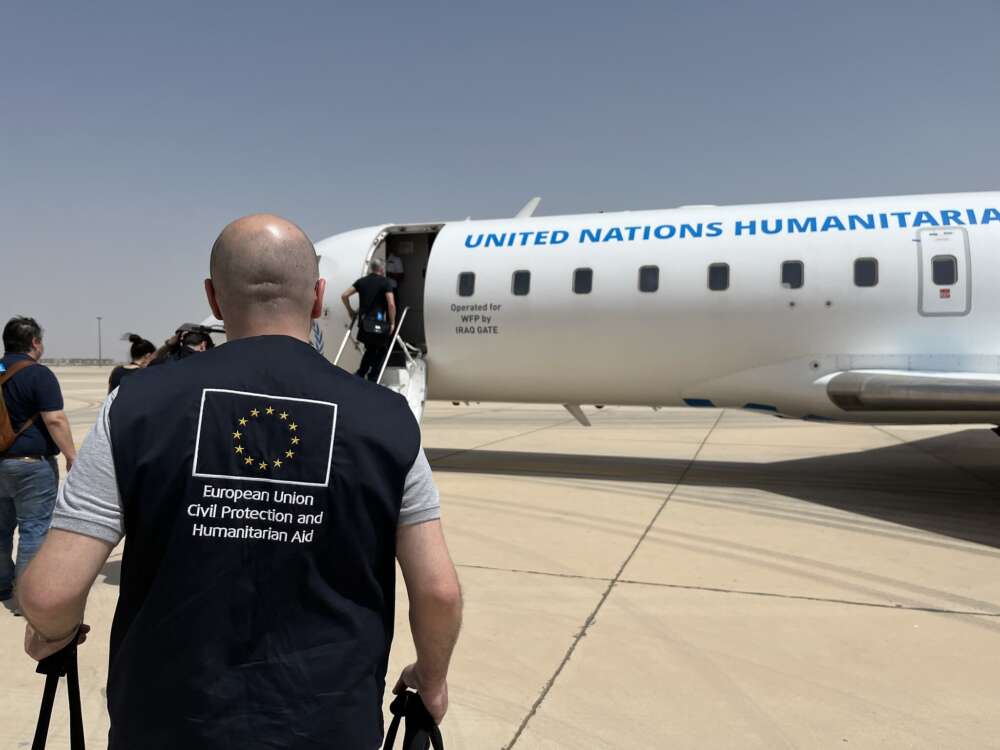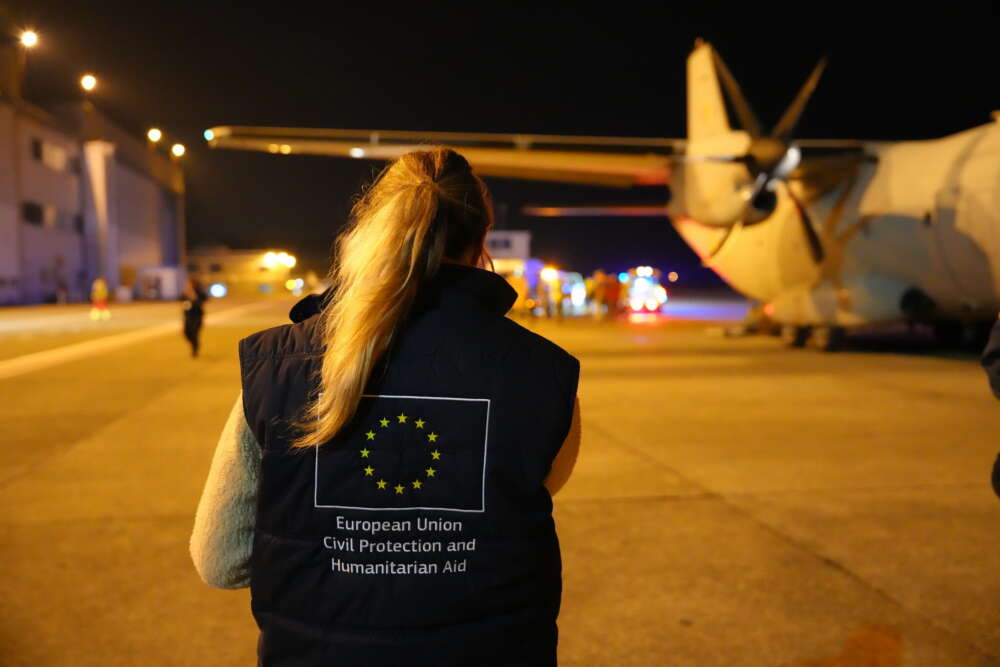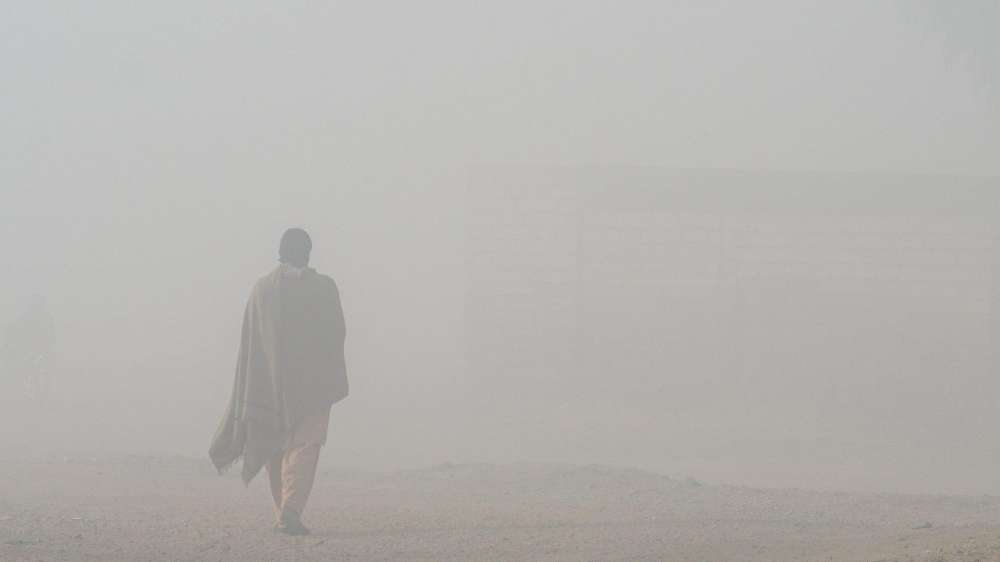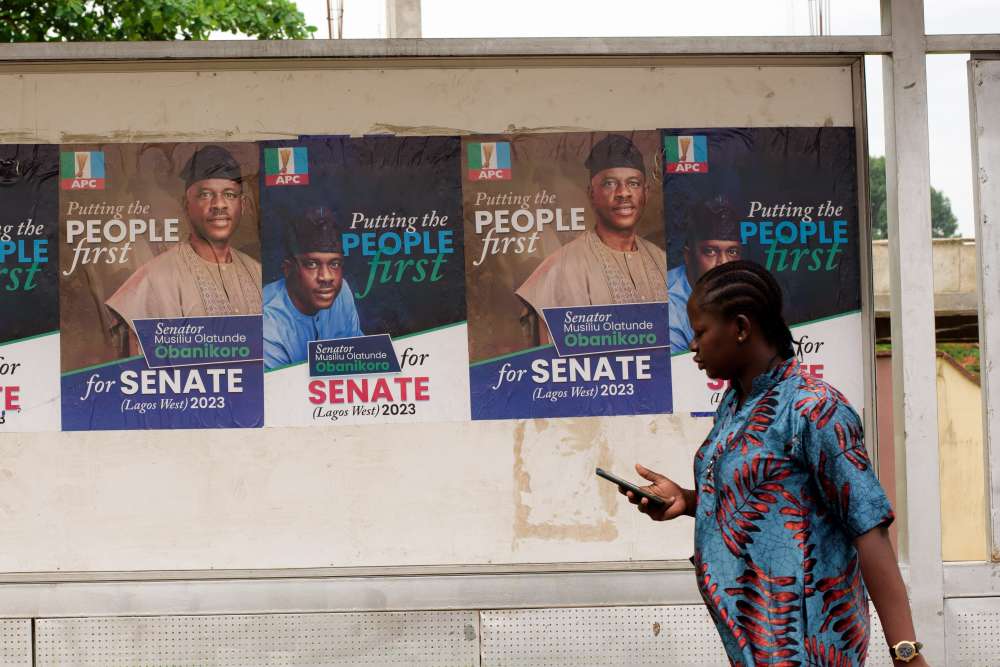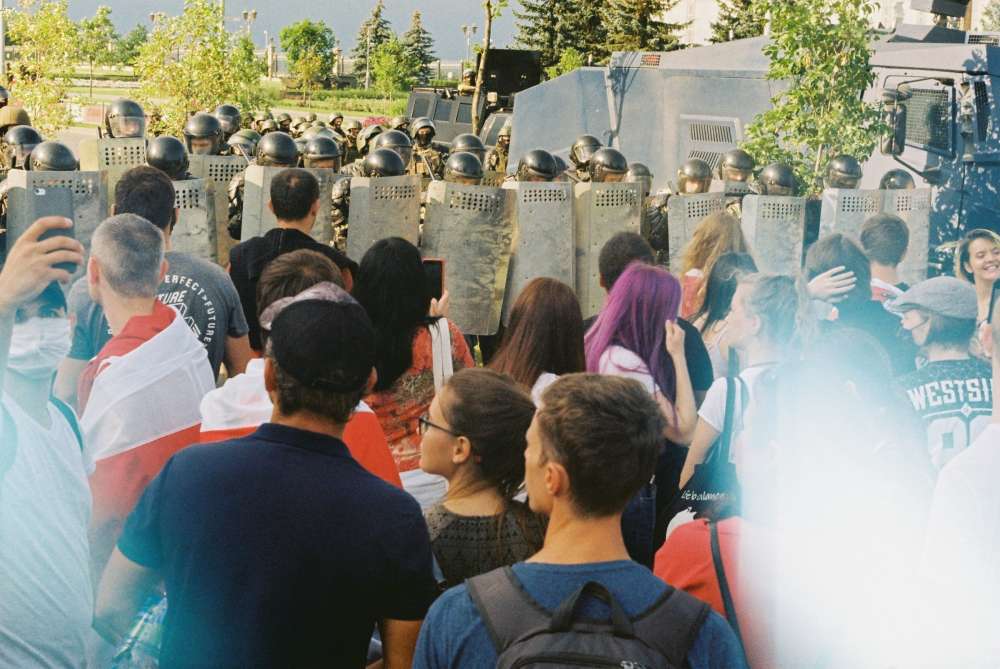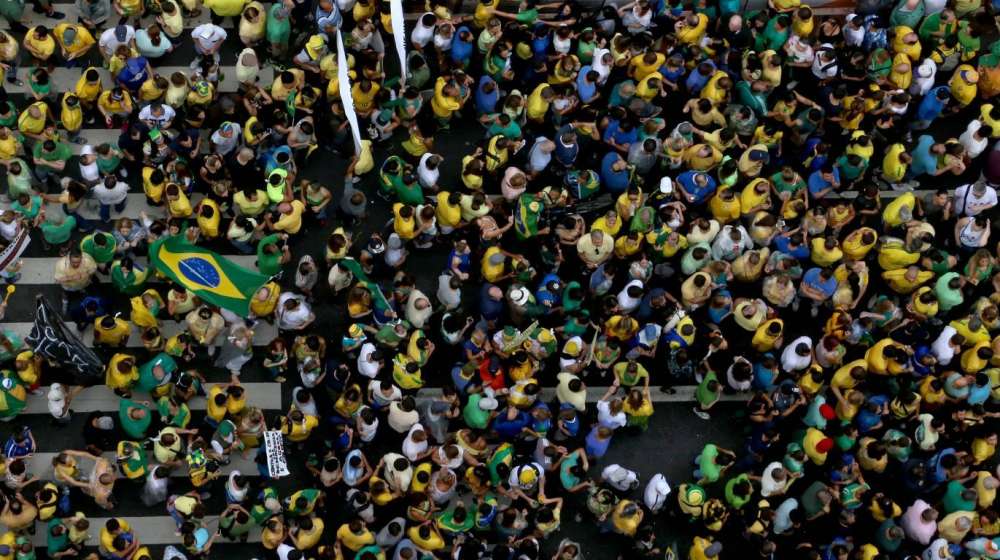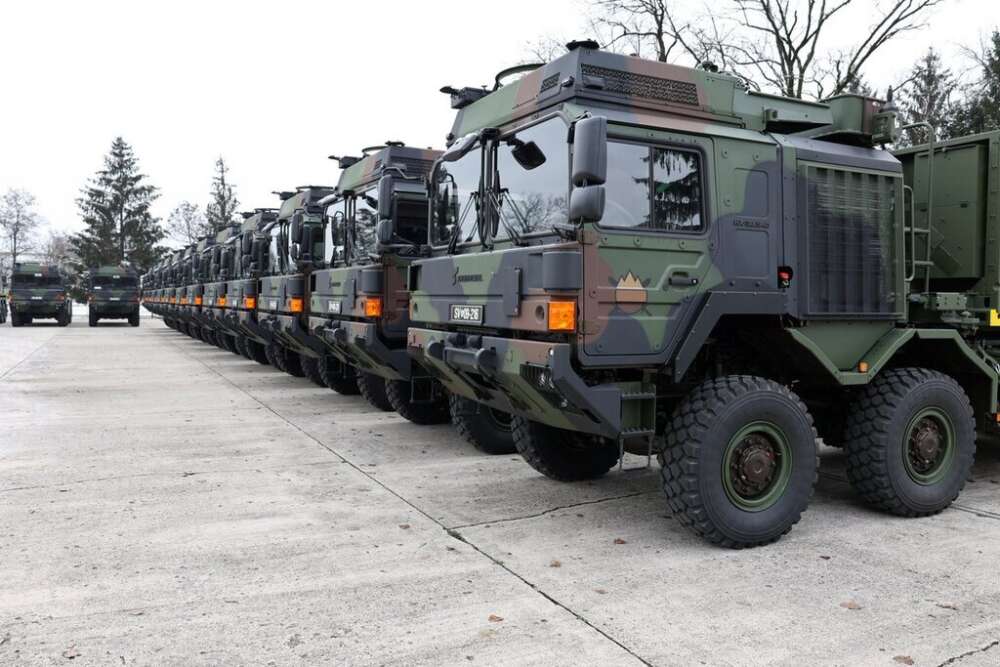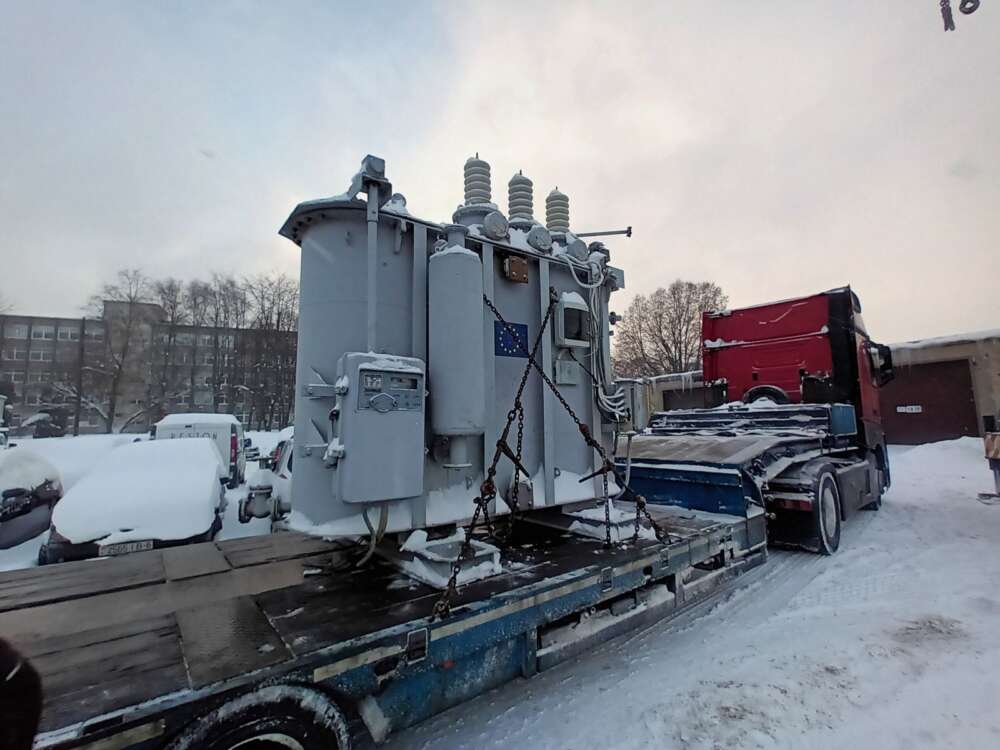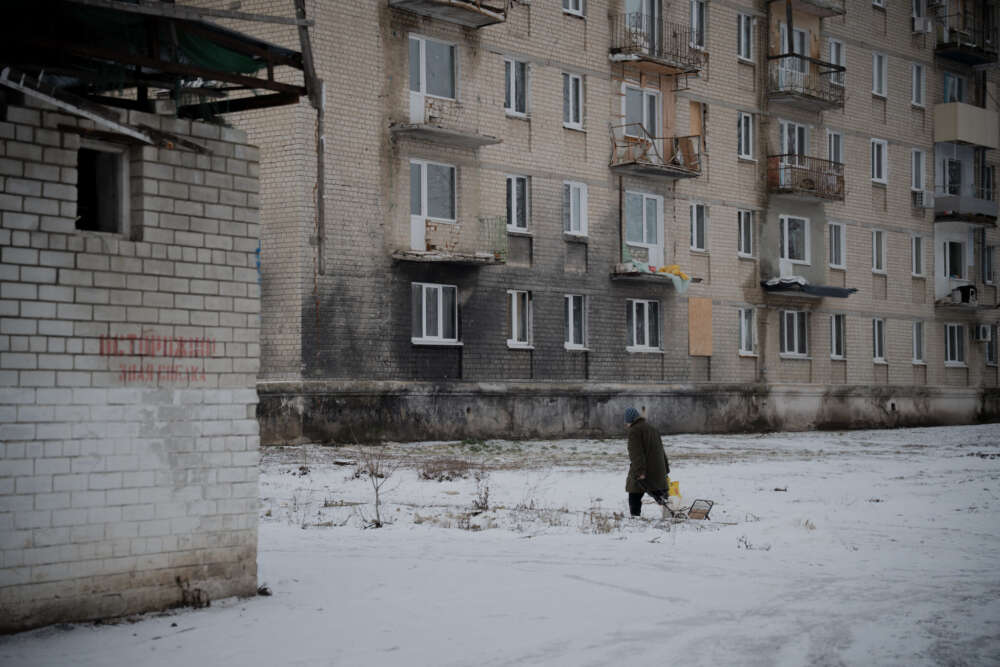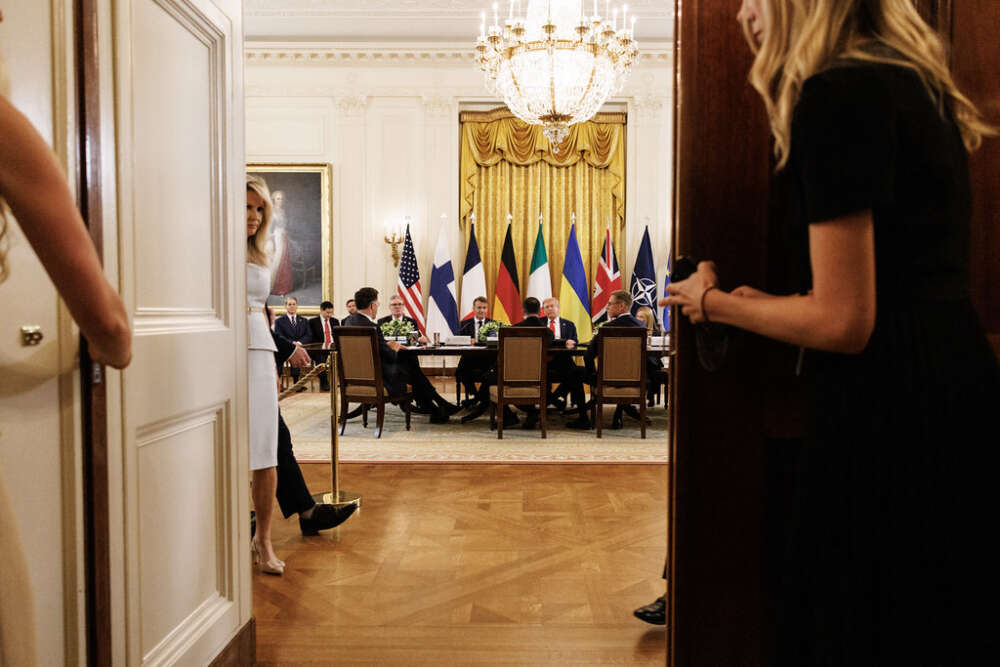Peace & Security
Wars and violent conflicts are on the rise. We look for ways to gauge future threats, (re)build a robust European security architecture, safeguard Europe’s economic security, and improve externally-assisted stabilization and peacebuilding. Working closely with practitioners in governments, international organizations and civil society, we offer analyses and advice, and facilitate learning and debate beyond conventional patterns.
When Your Ally Turns Narcissistic: A Self-Help Manual for Europe Navigating Transatlantic Relations
This study applies insights from psychological research on narcissism to offer a new approach to understanding — and countering — the unprecedented way the US currently wields power vis-à-vis its allies.
Peace & Security Aid in Crisis: Rethinking Civilian Investment and Local Leadership
This study assesses the state of non-military funding for peace and security and offers recommendations on how donors, advocates and local partners can ensure the shrinking resources are put to best use.
Seen But Not Heard
Youth radicalization is on the rise, but extremism prevention efforts are not keeping up. How can evaluations help extremism prevention become more attuned to youth realities?
Action Potentials
How do advances in neurotechnology matter for Germany’s and Europe’s foreign and security policy?
Foresight and Gaming
Sometimes, innovative analysis is a matter of changing perspectives. At GPPi, we are working with the methodologies of foresight and gaming – they help us to escape key limitations of traditional analytical techniques, and to identify hidden challenges and opportunities. Foresight tools limit our cognitive and social biases, which otherwise restrict what kinds of futures we can imagine and prepare for. Gaming allows us to play out potential policy changes interactively and to explore possible effects realistically. The crucial upside: there are no real-life consequences – and it is much faster.
Current Projects
The Psychology of a New Geopolitical Era: Navigating an Age of Disruption
This research project offers a new approach to understanding current inter-state negotiations and geopolitics, exploring how psychological concepts such as narcissism can help explain the motives, goals and patterns of behavior of the new US administration.
Strategic Foresight and Anticipatory Action
Governments and organizations are increasingly adopting foresight methods to anticipate and mitigate crises. Which methods help prevent crises? And how can they be used to develop methodological innovations to avert crises in Europe and beyond?
Thinking the War From the End: Insights for the War Against Ukraine
To conceive of a politically sustainable end to Russia’s war against Ukraine, the project team will be identifying benchmarks for future peacekeeping and analyzing global stakeholders’ perspectives on the war.
PrEval: Improving Violent Extremism Prevention Through Evaluation
Together with the PrEval consortium, we are developing evaluation designs to assess Germany’s needs and capacities in preventing violent extremism.
Political Tools for Managing Crises in Africa
The African continent faces several governance and security challenges, ranging from civil wars to coups and violent extremism. Previous policy responses, both African and European, have often been inadequate. We propose policy recommendations for long-term stabilization.
REUNIR: Future-Proofing EU Security, Enlargement and Eastern Neighborhood Policies
To bolster the resilience of EU candidate countries (both current and future) in this new age of international relations, Brussels needs to strengthen its foreign policy and security toolboxes.
Feminist Perspectives for Supporting Ukraine
GPPi is conducting a research project that delves into feminist analyses of Russia’s war on Ukraine and sheds light on what international actors can do to support Ukraine in a gender-transformative way.
Follow the Money: Local Peacebuilding and Stabilization
To help donors invest financial resources for peace and security more effectively, and empower local actors to pursue their own strategies to reduce violence and achieve peace, this project takes stock of decades of international peace contributions.
Reforming (In)Security
During and after armed conflict, who protects and who threatens people are crucial questions for governments and their international supporters. What happens when civilians who have taken up arms are asked to stand down? How should governments go about managing hybrid, sub-state armed forces and militias? And what are ways to reintegrate veterans into society during and after war? GPPi experts conducted extensive research on security governance in Afghanistan, Iraq, Ukraine, the Western Balkans and beyond.
Featured Publications
Lokale Friedensförderung unter Druck
Unter internationalen Gebern herrscht weitgehender Konsens darüber, dass lokale Akteure für die Friedensförderung wichtig sind. Aber halten sie tatsächlich, was sie versprechen und setzen ihre Worte in Taten um?
Sicherheit fördern in Krisen und Konflikten
Stabilität in Europas Nachbarschaften ist für Deutschland unerlässlich. Doch wirksames Engagement gelingt nur dort, wo echte Erfolgschancen bestehen. Da nicht-militärische Mittel knapp sind, ist eine konsequente Priorisierung wichtiger denn je.
Peace in Numbers: What Do Shifts in Funding Tell Us About EU Priorities?
Is the EU’s prioritization of infrastructure and investment under its Global Gateway strategy coming at the expense of funding for peace and security? The data shows, it likely is.
Europe in the Turtle Trap: Defense Spending Alone Will Not Protect Us
Broadening the EU’s debt break to include “external security” alongside defense spending could go a long way in ensuring that these reforms actually improve Europe’s long-term security.
Close the Gap: How to Leverage Local Analysis for Stabilization and Peacebuilding
Without a granular understanding of the political dynamics at work in places where violence occurs, even the best-intentioned stabilization efforts may go wrong. Local analysis can help, but using it requires sustained investment.
Digital Threats to Elections: Learning From What Has Worked in Africa
To help donors and implementers better mitigate digital threats and safeguard elections, this study relays insights from successful efforts by international, national and local organizations working across the African continent.
Supporting Civil Society in Acute Crises
Support to civil society is a main tool policymakers use to prevent confilict. How can donors do it better?
How Democracy Promoters Can Respond to Populist Protests
When populist protest movements gain traction, external democracy backers usually look to contain the groups organizing the protests. But the Brazilian experience suggests that there are other approaches worth considering.
Rethinking Economic Security
Current power shifts in the international system are pushing economic security to the fore of cabinet discussions and boardrooms across the globe. How can Europe position itself amid growing tensions over trade and technology? What approaches and instruments help protect national security and avert economic coercion? Through projects on Critical and Emerging Technologies (including a deep dive into Neurotechnology) as well as through wider analysis and commentary, we provide actionable insights for decision-makers in government and beyond.
Experts
Niklas Balbon
Sarah Bressan
Julia Friedrich
Andreas Heinemann-Grüder
Florian Klumpp
Melissa Li
Tobias Schneider
Abi Watson
Thorsten Benner
Paul Flachenecker
Zsófia Ágota Heidrich
Jakob Hensing
Polina Lebedeva
Philipp Rotmann
Sofie Lilli Stoffel
Funding & Contact
Our current work on global peace and security is generously supported by the German Federal Foreign Office, the German Federal Ministry for the Interior, IABG, GIZ as well as the Friedrich Ebert and Heinrich Böll Foundations. For previous projects, we also received grants and tenders from the German Foundation for Peace Research, Global Affairs Canada, the Fritz Thyssen Foundation, the European Commission’s Horizon2020 research funding scheme, the Robert Bosch Foundation, the Netherlands Organization for Scientific Research (NWO), the Konrad Adenauer Foundation, the Volkswagen Foundation in cooperation with Compagnia di San Paolo and Riksbankens Jubileumsfond, the Jeyroudi Foundation, the UN Secretariat’s Department for Peacekeeping Operations, as well as Humanity United.
For more information, please contact Philipp Rotmann.
Understanding the Syrian Chemical Weapons Complex
We compiled the most comprehensive dataset of chemical attacks in Syria and developed an interactive map and analysis that show the scale and pervasiveness of the use of chemical weapons in the Syrian conflict. The site allows users to explore more than 340 confirmed incidents, details our methodology, and offers access to the full dataset for further research and reporting.
Learn more about the project and visit the website.

